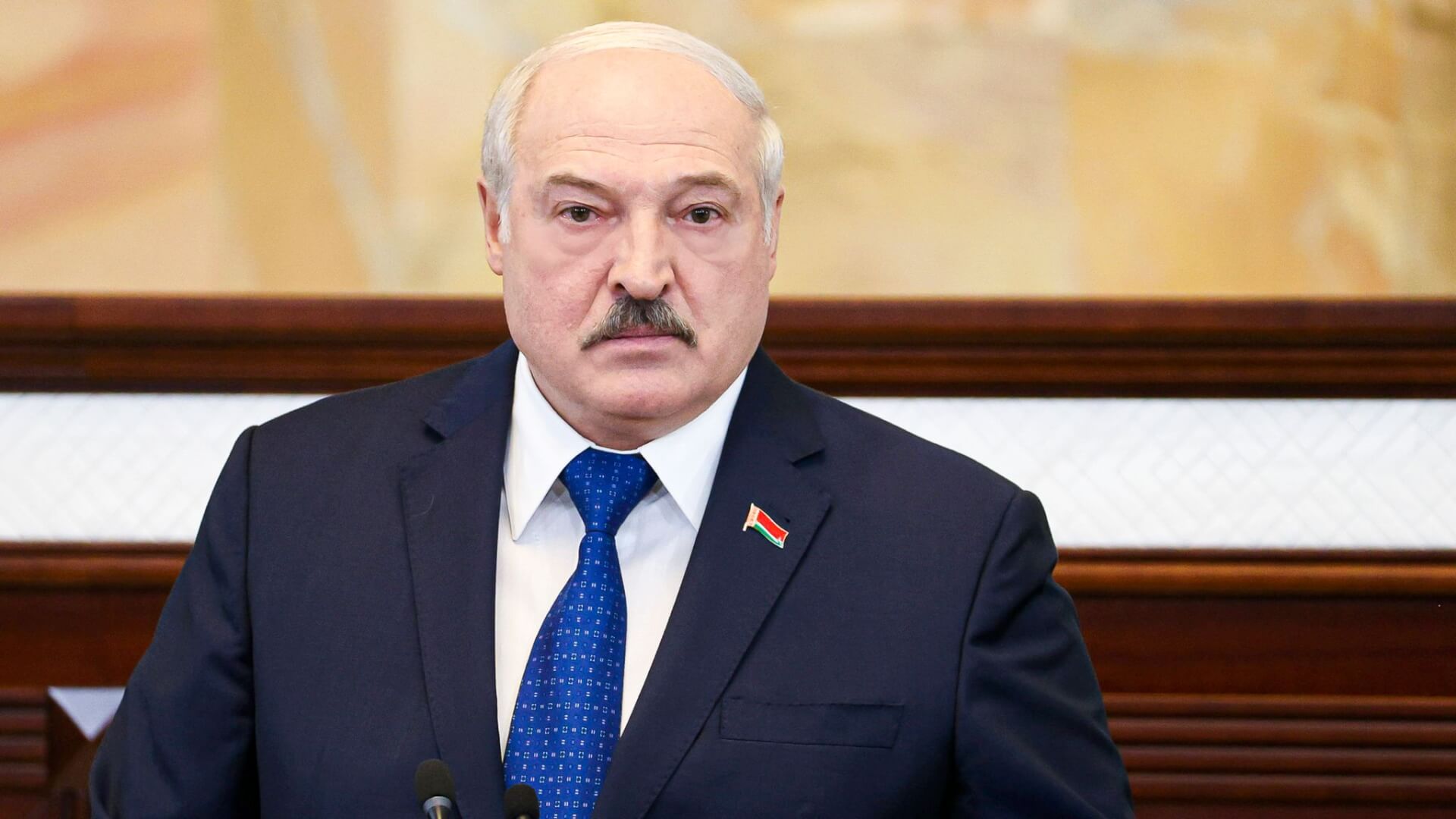In a 90-minute minute interview with Associated Press on Thursday, Belarusian President Alexander Lukashenko supported the Russian invasion of Ukraine but admitted that he didn’t expect the conflict to “drag on this way.”
Lukashenko defended the invasion, saying Kyiv had ‘provoked’ Moscow to act. He then remarked, “But I am not immersed in this problem enough to say whether it goes according to plan, like the Russians say, or like I feel it. I want to stress one more time: I feel like this operation has dragged on.”
Concerning the North Atlantic Treaty Organization, Lukashenko said Russia was not seeking a conflict with the alliance and urged the West to ensure that the conflict didn’t escalate. He added, however, that “Russia can’t by definition lose this war.”
“He [Putin] most likely does not want a global confrontation with NATO. Use it. Use it and do everything for that not to happen. Otherwise, even if Putin doesn’t want it, the military will react,” warned the Belarusian President.
The self-proclaimed President of Belarus, Alexander Lukashenko, believes that Putin's war in Ukraine did not go according to plan. He said in an interview with the @AP, "the operation has dragged on." pic.twitter.com/XR7MIUmNTr
— UkraineWorld (@ukraine_world) May 5, 2022
Lukashenko further reaffirmed support for Russia and called Russian President Vladimir Putin “his big brother,” stressing that the pair share open and friendly relations like no other two leaders in the world.
Lukashenko also stressed that his country doesn’t pose any threat to others and instead blamed the West, particularly the United States, for stoking conflict between Russia and Ukraine and giving orders to Ukrainian President Volodymyr Zelensky. To this end, he claimed that if US President Joe Biden wants, “everything will stop within a week.”
“We do not threaten anyone and we are not going to threaten and will not do it. Moreover, we can’t threaten -- we know who opposes us, so to unleash some kind of a conflict, some kind of war here ... is absolutely not in the interests of the Belarusian state. So the West can sleep peacefully,” he said.
“The U.S. wants to seize the moment, tying its allies to itself, and drown Russia in the war with Ukraine. It’s their goal — to sort out Russia, and then China,” the Belarusian leader added.
Furthermore, Lukashenko reiterated calls for an end to the war, saying he wants peace. He also spoke out against the use of nuclear weapons in Ukraine, calling it “unacceptable.” When questioned about Russia’s plans to use nuclear weapons, he said, “Whether or not Russia is capable of that — is a question you need to ask the Russian leadership.”
Ukrainians approve of foreign leaders:
— Alexander Khrebet/Олександр Хребет (@AlexKhrebet) April 29, 2022
🇵🇱 Duda 92%
🇬🇧 Johnson 87%
🇺🇸 Biden 86%
🇹🇷 Erdoğan 76%
🇱🇹 Nauseda 75%
🇫🇷 Macron 75%
🇪🇺 von der Leyen 66%
🇩🇪 Scholz 30% positive, 54% negative. Steinmeier 26% positive, 44% negative.
🇧🇾 Lukashenko 96% negative
🇷🇺 Putin 98% negative#Ukraine
Meanwhile, exiled Belarus’ opposition leader Sviatlana Tsikhanouskaya described the interview as a “desperate attempt to save his face & avoid responsibility” for a war in which he is “Putin’s accomplice.”
Other opposition leaders have called for sanctions on Lukashenko and his regime, claiming that ordinary Belarusians don’t support the Russian invasion of Ukraine.
For instance, activist Pavel Latushka rebuffed Lukashenko’s calls for peace, saying, “They look absurd after more than 600 missiles were fired from the territory of Belarus, and the country became a platform for aggression.” Latushka further called on the West to impose “harshest” sanctions on Minsk.
Belarus and Russia grew particularly close after Putin came to Lukashenko’s aid in 2020 by providing loans to counter Western sanctions imposed on Lukashenko and other high-ranking Belarusian officials for committing electoral fraud and widespread human rights abuses. Since then, both countries have jointly opposed Western intervention in Ukraine and warned against NATO admitting Kyiv as a member.
Lukashenka's interview to Associated Press is a desperate attempt to save his face & avoid responsibility. He pretends to be a firefighter, not an arsonist. Don't get fooled: he is a pathological liar, Putin's accomplice & must be brought to justice for what happens in Ukraine. pic.twitter.com/quYJ8BFNAc
— Sviatlana Tsikhanouskaya (@Tsihanouskaya) May 5, 2022
In fact, prior to the invasion of Ukraine, Belarus allowed Russia to move at least 30,000 troops and military equipment to its territory for joint military drills. As part of the drill, Russia relocated a dozen Su-35 fighter jets, two divisions of the S-400 anti-aircraft missile system and the Pantsir-S anti-aircraft missile and a gun company to Belarusian territory.
The joint drills intensified threats and served as a precursor to Ukraine’s invasion. At the onset of the invasion, Lukashenko allowed Russian troops to enter Ukraine via Belarus. These troops later attacked Ukraine from the Belarusian border in the north.
Belarus has conducted pre-emptive missile strikes on various military facilities in Ukraine. Similarly, Russian troops have launched missile strikes from Belarus that have targeted civilians in Kyiv and Kharkiv.
Furthermore, following the Russian invasion, Belarus voted to renounce its non-nuclear status, paving the way for Russia to deploy nuclear weapons in the country. The amendment also allowed Russian troops to remain on Belarusian territory indefinitely.
Despite publicly supporting Putin, Belarus has mediated three ultimately unsuccessful peace talks between Russia and Ukraine. After the first round of negotiations failed, both sides agreed to set up a humanitarian corridor during the second round of talks. However, during the third round of negotiations, both sides failed to agree to a ceasefire agreement.
In April, Putin and Lukashenko demonstrated their unity by calling the Bucha massacre fake. Lukashenko went one step further and claimed that the United Kingdom had staged the attacks.
Lukashenko’s support for Russia has prompted an international outcry, making Belarus a target of international sanctions. In March, the European Union banned 70% of imports from Belarus. Likewise, the US has sanctioned 24 Belarusian individuals and entities.

